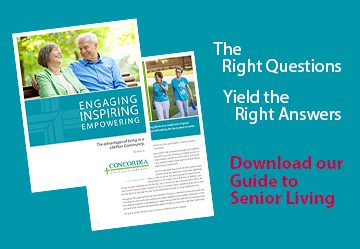Living Beyond 100
Living beyond 100 has become more of a possibility with the right lifestyle choices, and adults are living well into their 90s and even celebrating 100th birthdays. A recent study published in the American Heart Association Circulation Journal found that specific healthy lifestyle changes added an average life expectancy of 14 years for women and 22 years for men. Each decade, life expectancy rates have increased as people prioritize their health.
With people living longer, it’s important to think how to achieve a healthy, balanced life at 100. In this article, we’ll give you some tips to live beyond 100 that will help with health and wellness, financial health and a consideration of how living longer will impact your family.
Healthy Habits Matter for Life Beyond 100
The best way to strive for longevity is to improve your overall wellness. Adjust your lifestyle and embrace habits that aim to extend your lifespan. The following are the top wellness tips linked to longer lifespans:
Lower Calorie Diets
Multiple studies from nutritional journals have linked a lower calorie diet to a longer lifespan. Even a reduction in as few as 10% calories can significantly impact how long you will live. Aim for more of a modest decrease in calories rather than a drastic reduction in calories. Long-term calorie restriction is harder to follow if you’re reducing more than 25 percent of your daily intake. Then, you may experience issues such as low energy levels and mood swings. Moderate restriction reduces belly fat and BMI—two factors that could also achieve longer lifespans. An ideal BMI will fall between 18.5 and 24.9, according to the Centers for Disease Control. Vegetarian diets may also help extend lifespan since foods are lower in fat and calories and higher in antioxidants.
More Exercise
Exercising is linked to longer lifespans. The Journal of Aging Research found that people who exercise at least three hours a week had DNA and cells around a decade younger than those who lived a sedentary lifestyle. Three hours a week equals out to less than 30 minutes of exercise daily. Mix up your exercise routine to prevent boredom. Try out yoga, Pilates, swimming, or water aerobics. Even a brisk walk can help improve your cardiovascular health.
Spend Time Outdoors
Getting outside more is another way you can live beyond 100. Spending time outdoors increases a person’s vitamin D levels. Research has linked low levels of vitamin D to several severe diseases, including heart disease and diabetes. Each day, try to spend at least 15 minutes outside. Keep in mind that you should still wear sunscreen while outside since direct UV rays can increase skin cancer risk.
Don’t Smoke or Drink
Smoking could cause premature death and an increased risk of diseases. When you smoke, you’re more likely to develop heart disease and certain types of cancers. The medical journal Lancet stated that people who smoke live an average of 10 years less than non-smokers. However, it’s never too late to quit smoking and reap the benefits. Even if you stop smoking in your 60s, you could still improve longevity by more than three years. Heavy alcohol intake can also undermine your goal to live beyond 100. Liver, heart, and pancreatic diseases are all linked to heavy alcohol consumption. However, a glass of wine on occasion will not be detrimental to your overall health. Wine is mostly preferred over other types of alcohol since the drink has a high number of antioxidants.
Tips for Preparing to Live Beyond 100
To live well through your retirement years and beyond, you should prepare early. You need to have a plan to financially afford life beyond 99 to ensure that your quality of life doesn’t diminish as you age. As you continue living, your needs may change and you’ll want to set up a future where you can afford to have those needs met.
Prioritize Financial Planning
A common mistake is to skip over the retirement savings planning, or to not anticipate retirement savings to cover you beyond your 80s and 90s. Meet with a financial advisor early and set up a savings plan. Determine a budget and calculate how much of your monthly revenue can go into savings. Think about your evolving needs and what types of care you’ll need in your 60s, 70, 80s and 90s. The care you may need in your 80s may drastically differ from what you’ll need in your 90s.
Talk to Friends and Family About Future Plans
When you live longer, it also impacts the people in your life. Talk to your friends and family about your future housing goals. Where do you want to live? Will you plan to live near them? If you’re married, how does your spouse feel about your future living options? You want to make sure everyone in your inner circle knows your retirement goals. This way everyone involved can prepare for the many years ahead. They can figure out where they want to live in proximity to you so that you both can continue a close relationship.
Research Senior Living Options
Once you reach retirement age, it’s not uncommon to downsize. Many people don’t need or want the financial responsibility of maintaining a large home after children have grown and left. Plus, a lot of time goes into the upkeep of a house, for yard maintenance, housekeeping, and home repairs. Instead, you opt to live in a warm and welcoming retirement community. Such communities are ideal for longer life spans, as they offer varying levels for the care people may need through their lifetime.
When you live in a senior living community, you no longer have to worry about mowing the lawn, repairing broken fixtures, or cleaning the gutters. All of these tasks and more will get handled by professionals on your behalf.
Another key advantage of certain senior living communities is that all services and amenities can be customized based on your life stage. There are different types of homes, including independent living, assisted living, short-term nursing, long-term care, and memory care. Many residents who need a little extra help with activities of daily living can easily transition from independent living to assisted living.
Senior Living at Condordia
Concordia, a full-service retirement community in Oklahoma City, has everything you need to live your best life beyond 100. With health monitoring and wellness programs, you will thrive within the community. Contact us today to discuss our available living options and amenities.
Health & Aging


